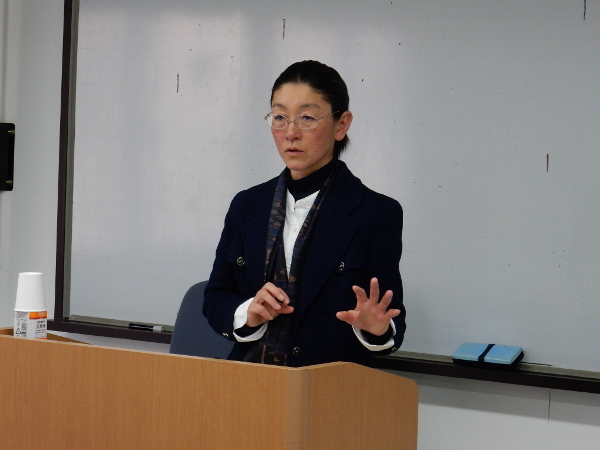 清水丽现为丽泽大学外国语学部教授。1990年毕业于筑波大学第一学群第一学类东洋史专科,1993年毕业于筑波大学大学院硕士课程区域研究研究所,1998年修毕筑波大学大学院博士课程国际政治经济学研究所的博士班学分,2002年取得筑波大学博士学位(国际政治经济学),2002年起于国士馆大学21世纪亚洲学部担任副教授,升任同学部教授,2014-16年担任东洋文化研究所特任研究员,2017-18年担任同研究所特任准教授。专长为亚洲政治外交史、日中台关系、日台政治外交史。
清水丽现为丽泽大学外国语学部教授。1990年毕业于筑波大学第一学群第一学类东洋史专科,1993年毕业于筑波大学大学院硕士课程区域研究研究所,1998年修毕筑波大学大学院博士课程国际政治经济学研究所的博士班学分,2002年取得筑波大学博士学位(国际政治经济学),2002年起于国士馆大学21世纪亚洲学部担任副教授,升任同学部教授,2014-16年担任东洋文化研究所特任研究员,2017-18年担任同研究所特任准教授。专长为亚洲政治外交史、日中台关系、日台政治外交史。Full Text
簡体字 / 正體字 / English摘要:
本论文考察了从2016年5月蔡英文上任後二年间的日台关系状况,并检讨了今後的课题。民进党的蔡英文政府上任初期以来,耐心地去改善与中国关系,并且在内政上也进行了各种社会制度的改革。然而,与中国的关系未有进展,加上改革遭到反对,造成支持率低迷落。日本原先期待台湾的食品进口管制的解禁能够早日实现,但是台湾国内政治问题的混乱反而令日本方面的强烈期待感转变为巨大的失望,甚至对蔡总统的政府经营能力出现怀疑的声音。另一方面,日台之间实务问题的处理,则是依循着马英九执政时期已签署的各种协议所形成的制度下顺利地进行,在日本,对於中国对台施压感到同情的看法较强,因此包括领袖之间的讯息往来等,从东日本大震灾以来人道的深厚羁绊发挥了象徵着日台友好的机能。
这两年间的日台关系,在这样的实务处理的各种渠道虽然未发生重大问题,不过日台各自重视的不同问题亦未见进展。从长期来看的话,在进行摸索「有关震灾复兴的故事」以及新的象徵的同时,如果不去建立下一代的人际管道的话,要突破表面上看似良好的关系,去进行处理悬而未决的案子及建构新关系上会有难度。
摘要:
本論文考察了從2016年5月蔡英文上任後二年間的日台關係狀況,並檢討了今後的課題。民進黨的蔡英文政府上任初期以來,耐心地去改善與中國關係,並且在內政上也進行了各種社會制度的改革。然而,與中國的關係未有進展,加上改革遭到反對,造成支持率低迷落。日本原先期待台灣的食品進口管制的解禁能夠早日實現,但是台灣國內政治問題的混亂反而令日本方面的強烈期待感轉變為巨大的失望,甚至對蔡總統的政府經營能力出現懷疑的聲音。另一方面,日台之間實務問題的處理,則是依循著馬英九執政時期已簽署的各種協議所形成的制度下順利地進行,在日本,對於中國對台施壓感到同情的看法較強,因此包括領袖之間的訊息往來等,從東日本大震災以來人道的深厚羈絆發揮了象徵著日台友好的機能。
這兩年間的日台關係,在這樣的實務處理的各種管道雖然未發生重大問題,不過日台各自重視的不同問題亦未見進展。從長期來看的話,在進行摸索「有關震災復興的故事」以及新的象徵的同時,如果不去建立下一代的人際管道的話,要突破表面上看似良好的關係,去進行處理懸而未決的案子及建構新關係上會有難度。
Abstract:
This paper examines Japan-Taiwan relations since the establishment of the Tsai Administration in May 2016 and discusses future potentialities. From its inception, the DPP's Tsai Administration has patiently and steadily managed relations with China, while at the same time undertaking various institutional reforms. However, relations with China have not progressed, and in response to opposition to several reforms, approval rating has been sluggish.
Japan had hoped that the Taiwanese ban on food and agricultural imports from Japan would be lifted as soon as possible, but progress has slowed after it became a domestic political issue in Taiwan. Japan’s strong expectations of reconciliation on this issue have turned into a major disappointment, to the degree that some in Tokyo are questioning President Tsai's ability to lead the government. However, Japan-Taiwan relations have progressed steadily in most other dimensions of the relationship, strengthened by the precedent set by the Ma Ying-jeou Administration through various agreements and other means.
In Japan, there is strong sympathy for Taiwan in its relationship with China, and strong humanitarian ties across levels of diplomacy have developed since the Great East Japan Earthquake in 2011. These ties serve as an important symbol of friendship. Over the long term, both countries should nurture a "narrative of recovery and resilience" towards building human channels that will continue into the next generation. This will be necessary for managing current and future challenges, and for upgrading the bilateral relationship into one more characteristic of formal allies.